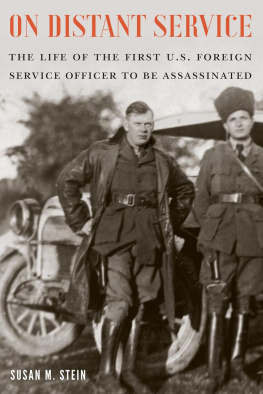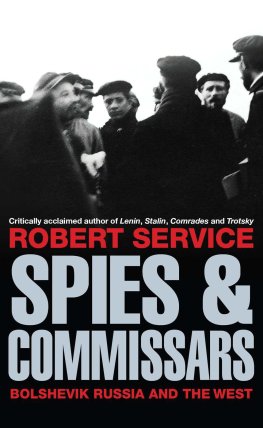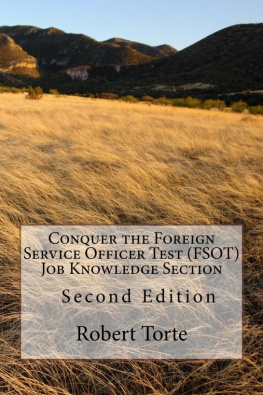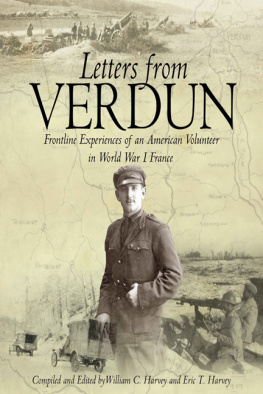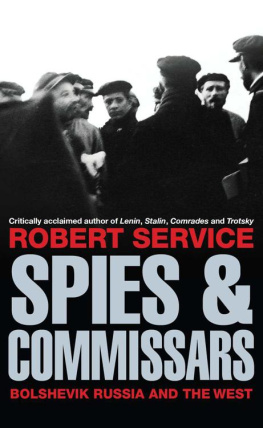Robert Whitney Imbrie, the first U.S. foreign service officer to be assassinated abroad, is a fitting hero indeed. In the era of Theodore Roosevelt and the doctrine of the strenuous life lived in the blood and dust of the arena, Imbrie, with his derring-do, his pleasant and outgoing personality, and his unfailing personal courage, is a compelling presence.
Thomas Bailey and Katherine Joslin, authors of Theodore Roosevelt: A Literary Life
A valuable biography that illustrates Robert Imbrie as a versatile man of character. His life, no less than his tragic end, constitutes a testimony to an honorable and distinguished man.
Michael Occleshaw, author of Dances in Deep Shadows: The Clandestine War in Russia, 19171920
On Distant Service
The Life of the First U.S. Foreign Service Officer to Be Assassinated
Susan M. Stein
Potomac Books
An imprint of the University of Nebraska Press
2020 by Susan M. Stein
Cover designed by University of Nebraska Press; cover image is from the interior.
Author photo Johnston Portrait Studio.
All rights reserved. Potomac Books is an imprint of the University of Nebraska Press.
Library of Congress Cataloging-in-Publication Data
Names: Stein, Susan M. (Susan Margaret), 1942 author.
Title: On distant service: the life of the first U.S. foreign service officer to be assassinated / Susan M. Stein.
Description: [Lincoln, Nebraska]: Potomac Books, an imprint of the University of Nebraska Press, [2020] | Includes bibliographical references and index.
Identifiers: LCCN 2019041038
ISBN 9781640121942 (hardback)
ISBN 9781640123526 (epub)
ISBN 9781640123533 (mobi)
ISBN 9781640123540 (pdf)
Subjects: LCSH : Imbrie, Robert Whitney, 18841924. | Imbrie, Robert Whitney, 18841924Assassination. | United States. Foreign ServiceBiography. | DiplomatsUnited StatesBiography. | Diplomatic and consular serviceUnited StatesHistory20th century. | United StatesForeign relations20th century.
Classification: LCC E 748. I 84 S 74 2020 | DDC 327.2092 [B]dc23
LC record available at https://lccn.loc.gov/2019041038
The publisher does not have any control over and does not assume any responsibility for author or third-party websites or their content.
To Hap
Contents
Above all, loving gratitude goes to my husband, Charles H. Stein. This book is dedicated to him, to Hap. And heartfelt thanks to the rest of the Stein familyEd, Jane, Margaret, Paul, Amy, John, Maggie, and Michaelfor giving Robert Imbrie a place at the family table.
My warm appreciation also goes to the many others who helped with this project, in particular Owen Gleeson, Agnes Hindemith, Marty Hosking, Chas Kestermeier SJ , Jim Lawrence, Kris Lawson, Dominic Longo, Mohammed Gholi Majd, Lt. Col. Tom McCann (Ret.), John P. Nelson, Jane OBrien, Tom Pesek, Todd Peppers, Lee Smith, and Lt. Col. John Nagl (Ret.), whose support came at a crucial moment. Thank you, too, to Thomas Bailey, Katherine Joslin, and Michael Occleshaw for their careful reading and encouragement.
My gratitude also extends to Madalyn Chapman, web content creator; Don Doll SJ and Carol McCabe, Magis Productions, Creighton University; Dustin Hurt, senior graphic consultant; Marianne Meyer, AFS Foundation, Zurich, Switzerland; Kevin Morrow, Ab Initio Archives Research, Washington DC ; Tamara Smith (Mrs. Robert I. Smith), widow of Robert Imbries namesake; Elizabeth Curtiss Smith and Robert I. Smith Jr., children of Robert Imbries namesake; the staffs at the Creighton University Reinert Library; Dr. C. C. and Mable L. Criss Library, University of Nebraska at Omaha; and Omaha Public Library, especially its Interlibrary Loan specialists; and, of special note, Elizabeth Gray and David A. Langbart of the National Archives and Records Administration. Finally, I am happily indebted to the team at the University of Nebraska Press, Potomac Books, including Tom Swanson, who championed my book, Abigail Stryker, Ann Baker, Sara Springsteen, Annie Shahan, and Tish Fobben, as well as copyeditor Jane Curran, cartographer Erin Greb, and all who helped convert my manuscript into a book.
I continue to ask for help: if there are errors in the book or materials regarding Robert Imbrie that would further advance his story, please contact me through my publisher or www.robertimbrie.com. I hope someone has his diary, despite his wifes directive to have it destroyed upon her death.
January 11, 2012: A motorcycle weaves through Teherans early morning traffic and pulls up sharply alongside a Peugeot 405. A snap is heard as a magnetic bomb is attached to the car and the motorcycle speeds off, disappearing into the congestion. Moments later the bomb detonates, blowing apart the car. A nuclear scientist, Mostafa Ahmadi Roshan, is killed, one of five Iranian nuclear scientists murdered in separate incidents in Iran between 2010 and 2012. Iran blames Great Britain, the United States, France, Germany, and Israel for the murders.
That July Abdollah Ganji, the hardline managing director of Javan Daily, a publication dedicated to the Islamic Revolution, asked why in the face of these murders the talks were not suspended and reparations demanded. He wrote that Iranians remember very well two justified attacks on foreign embassies. The first occurred in 1829 when Iranians stormed the Russian embassy in Teheran to rescue two Islamic women, killing the ambassador and thirty-four embassy employees. The second was in 1924 in protest to the insulting behavior of a vice consul in the American embassy [whom the Iranian] people sent... to hell in Sheykh Hadi Street in Tehran. Harkening to these attacks, Abdollah Ganji lauded a recent storming of the British embassy with protestors chanting, Death to England, Death to America, Death to Israel. Tolerance, he concluded, was a nave concept.
In Abdollah Ganjis invective, who was the American vice consul sent to hell? What prompted the assault? Who killed him? What was Americas response? Who in America knows of this incident that Iranians remember very well?
The first American foreign service officer to lose his life while serving his country was William Palfrey, lost at sea on the way to his post in 1780. The first U.S. foreign service officer to die a violent death was Harris E. Fudger, consul at Santa Marta, Colombia, stabbed to death in an apparent robbery in 1826. The first to die a violent death for political reasons was Robert Whitney Imbrie, murdered in Teheran on July 18, 1924.
Of the first sixty deaths of Americans in the foreign service, only three men were murdered. The others died from diseases, including typhoid, yellow fever, and cholera or from other causes such as earthquakes. In the early years of diplomacy the murder of foreign service officers was highly unusual, and from the point of precedent, any foreign service officer would have known the slim odds of a politically motivated death and felt safe.
I came upon Robert Imbries story in exploring another subject, no doubt a common redirection for researchers. Specifically I was looking into the life of Boake Carter, an early radio commentator and author, whose given name may have come from his fathers posting in Baku, the capital of oil-rich Azerbaijan. Oil and the vast sweep of land then called the Near East led me to Imbrie, so that I approached his history from its conclusion, again probably a common occurrence for researchers.
The story of Robert Imbrie holds the elements of any good storyadventure, danger, suspense, conflict, romance, tragedy, a strong protagonist, and enduring significance. Unfortunately, Imbries story has been almost totally neglected. What exists spotlights his death. The primary documentation consists of government records, Imbries war memoir and travel writing, some letters, photographs, and newspaper and magazine articles. Little has been written about him in academic circlesa few articles, passing references, a chapter in one book, and a masters thesis. In some sources Imbrie is not named but referred to only as an American vice-consul. The secondary sources concern his death, but understanding his death requires knowing who he was, how he came to his end, and how it shaped U.S. foreign policy in the Middle East.

